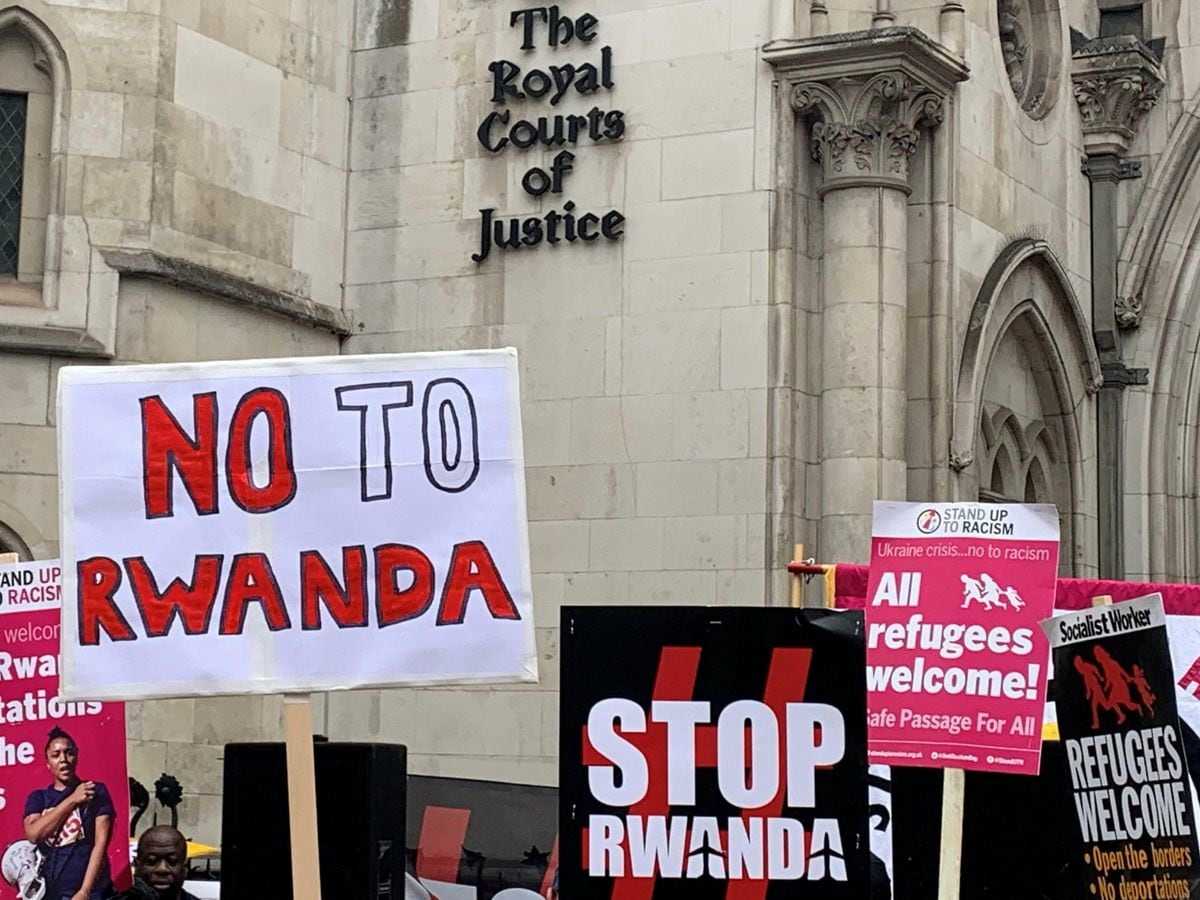
UK Supreme Court upholds Sunak’s Rwanda Asylum Policy unlawful
By Staff Writer
In a landmark ruling last Wednesday (15), a five judge bench of the Supreme Court of the United Kingdom unanimously dismissed the Home Secretary’s appeal to enforce Rwanda Asylum Policy, and upheld the Court of Appeal’s decision that the policy is unlawful. The court concluded that there are substantial grounds for believing that asylum seekers would face a real risk of ill-treatment by reason of refoulement if they were removed to Rwanda. This ruling highlights the importance of upholding human rights and the principle of non-refoulement.
The case involved a challenge to the lawfulness of the Rwanda asylum policy and the Home Secretary’s decisions to remove individual claimants to Rwanda. The United Nations High Commissioner for Refugees (UNHCR) intervened in the proceedings, providing evidence based on its practical experience of working in the Rwandan asylum system.
The Supreme Court’s decision was based on a fact-sensitive evaluation of how the assurances given by the Rwandan government would operate. The court considered factors such as the general human rights situation in Rwanda, its laws and practices, its compliance with similar assurances in the past, and the existence of monitoring mechanisms.
The court found that the Divisional Court had erred in its approach by not engaging with UNHCR’s evidence and by solely relying on the assurances given by the Rwandan government. The court emphasized the importance of giving particular weight to UNHCR’s evidence, given its remit and practical experience in the Rwandan asylum system
The Court of Appeal concluded that there were substantial grounds for believing that asylum seekers would face a real risk of ill-treatment if they were removed to Rwanda. This conclusion was based on evidence of Rwanda’s poor human rights record, including extrajudicial killings, deaths in custody, enforced disappearances, and torture. The UK government itself had criticized Rwanda for these human rights violations.
Additionally, UNHCR’s evidence highlighted serious and systematic defects in Rwanda’s asylum procedures and institutions. These included concerns about the lack of legal representation, the lack of independence of judges and lawyers in politically sensitive cases, and the untested right of appeal to the High Court. There were also concerns about the high rate of rejection of asylum claims from certain conflict zones and Rwanda’s practice of refoulement.
Non-refoulement is a core principle of international law, protecting asylum seekers from being returned to a country where they would face persecution or serious harm. The UK has ratified several international treaties, including the United Nations 1951 Convention relating to the Status of Refugees and the European Convention on Human Rights, which enshrine the principle of non-refoulement.
Parliament has given effect to these treaties through domestic legislation, such as the Asylum Act 2002 and the Asylum and Immigration (Treatment of Claimants etc) Act 2004. These laws provide protections for asylum seekers and ensure compliance with international obligations.
The Supreme Court’s ruling on the Rwanda asylum policy reaffirms the importance of upholding human rights and the principle of non-refoulement. The court’s decision highlights the need for a fact-sensitive evaluation of assurances given by receiving states and the significance of considering the general human rights situation, laws and practices, compliance with past assurances, and the existence of monitoring mechanisms.
The court’s recognition of UNHCR’s evidence and its practical experience in the Rwandan asylum system underscores the importance of expert input in asylum cases. This ruling serves as a reminder that asylum policies must be implemented in a manner that respects and protects the rights of individuals seeking refuge.
This right-wing anti-immigrant policy is part of Prime Minister, Rishi Sunak’s promise to ‘stop the boats’.
In response to this ruling, Rishi Shunk’s conservative government is moving fast further to the right, going ahead with the deportation policy and promising other anti-migrant attacks.
[Featured image courtesy of shropshirestar.com]

